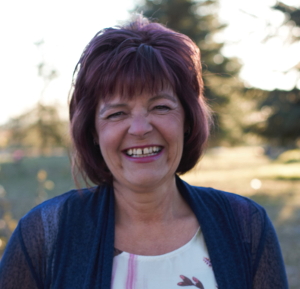Different, not unequal
Women in the industry today
It isn’t news to anybody that there are far more men in our industry – particularly in management or ownership positions – than women. Being less numerous brings with it challenges that might be surprising to some people, but also opens the door to unique management styles.
We talked to three industry leaders about their journey in management, and asked them to be frank about things that they feel confront women that don’t happen to men. We also tried to see how being a woman in our industry can benefit everyone around that manager.
Career path
One woman who preferred not to do the interview said she’d be interested in knowing if there are female managers or owners who didn’t get to their position through nepotism – promotion from within their own family.
However, even with a family connection to the business, it wasn’t always a foregone conclusion that these women would join the firm or move up.

Lisa LoScerbo is CEO of Best Care Dry Cleaners of Winnipeg, MB. Though she’d worked at her parents’ cleaning plant on the weekends, after school and in the summer, her eyes were set on a musical career. She took 10 years of voice and piano lessons and was enrolled in the music program at the University of Manitoba.
“One week before my scheduled voice audition, and after careful thought and consideration, I instead jumped in with both feet and chose the family business over a singing career,” she said. “I shocked my parents with this sudden change of heart, but during our first conversation about it I realized I had always loved working at Best Care. I found joy in joining my parents at work. I was surrounded by beautiful clothing. It was there that I fell in love, not only with clothes, but with keeping clothes clean.”

Ashlynn McConvey is General Manager of Dalex Canada, Inc. Her family name is well known throughout the Canadian industry, and you could assume she was just given her position because she is the boss’s daughter. You couldn’t be more wrong.
“I have a business degree from Queen’s University and was successful in my career before I came to work at Dalex,” she said. “I was confident in my experience and my abilities when I joined the family business 14 years ago.”
Wanda Ackert, owner of Krazee Klean, Inc. industrial dry cleaning and commercial laundry in Fort Kent, AB, has always done things her own way. By believing in herself, and having a key person already in the industry believe in her, too, she’s carved out a thriving business near the oil fields.
A divorced single parent, Ackert had worked in a laundry facility for 9 years as the office manager. “I was doing the receivables and working the floor for $9.00 per hour,” she said. “My son and I were living back home with my parents. I was working the farm full-time and my job full-time. I was not even close to making enough money for us to move out on our own. I wanted better for my son and I, so a co-worker and I decided to start our own laundry business in the heart of an oil patch. Go where the coveralls are.”

Getting off the ground wasn’t easy. When women seek financing to start a business, they frequently encounter attitudes and questions that would never be asked of a man in the same position. Ackert went into it with another woman as a partner, because she knew it improved their chances of getting loans.
“They won’t even look at a single woman (let alone with a child) to lend money to,” she said. “The main question has always been, ‘What happens if you get sick? You don’t have a significant other to fall back on.’ But that’s what disability insurance is for!”
It took Terry Rosin, owner of Coronet Equipment in Edmonton, AB, to get her started. “He believed in me. He fronted me the $15,000 down payment for the loan and has been my rock ever since. A support network is so very important.”
Issues where they shouldn’t exist
LoScerbo tries to be philosophical about things that have happened. “Whether male or female in business, some of what we experience is our own perception. Sometimes it’s a person’s ignorance or that they’ve made a decision to think the way they have always thought,” she said.
“The most disappointing for me has been the multiple times I had to explain (not apologize) to male customers that, yes, I am in fact the owner of Best Care. Sometimes the shock of a young female in this role was too much for them to comprehend, no matter how capable I am. There has been disrespectful behaviour, comments, inappropriate flirting, failure to make eye contact but happy to stare at my chest, and often assumptions that I couldn’t possibly know as much as men in our industry. I’ve noticed a huge improvement over my 25+ years in dry cleaning, but I think there is still work to be done.”
McConvey takes a tougher approach. “My being a woman in this or any industry should not be an issue so I never let it be,” she said.

Ackert’s company caters to an overwhelmingly male industry in the oil fields, cleaning coveralls and other items that come in. As a result, she just assumes there will be days when things go awry.
“I deal with male attitude daily. I am especially fond of the fellow that thinks to intimidate me into submission so he can get his own way, whether it’s male customers and contractors or tradesmen,” she said. “I once had a plumber in my building telling me how he was going to do a set up for me. I said, ‘No, that’s not what I want.” He got snarky with me and intimidating. I responded by saying, ‘You know what? I’m paying the bill, so you will do it my way please.’ I was professional right to the end. He cussed me out and said he was leaving. I told him to never come back.”
She described another situation in which a very young chemical delivery man tried to run over her carefully crafted plan for the day. “I asked him to start with the waste water barrels first, as I was still running a load in the dry cleaning machine.” He objected and asked who she thought she was. Hearing she was the owner didn’t change his attitude. The company sent someone else the next day, who was more than willing to do what the customer – Ackert – asked.
“Women always pay their bills, yet we can’t seem to get a bank loan,” she said. “A man is apparently more bankable than a woman, and yet all the businesses in my area that have gone bankrupt had male owners who over-extended their credit and had to close. If I assert myself, I’m a bitch. If I take time to think over a situation, I’m indecisive. If I cry in anger at how I’m being treated, I’m emotional.” Yet men do many of the same things all the time.
Vive la différence!
Women and men do have some traits that are different when it comes to business, just as any individuals do. But interestingly, the women had thought about those differences, and how they come out in their management style.
Lisa LoScerbo feels being a woman is a real plus. “I think I have developed good emotional intelligence. I read body language, facial expressions, voice inflections, and use that to help me communicate better with my team and customers. When staff situations come up, I consider what someone’s home and family life is like when making decisions.
“I have a collaborative management style, including the people who work alongside me in the business every day. I ask them how we can improve their work space and their process. Engaging our team in decisions that affect their job and outcomes has been a huge plus. They know the flow of their work space and the equipment they use better than anyone else. Overall, I believe my style benefits Best Care because I use emotion in addition to logic.”

Ashlynn McConvey falls back on her education and training in being a good manager, as well as special traits that seem to be more true of women than men. “I think my ability to multitask is an asset,” she said. “I also feel the most important trait I bring to the table is trust. Trust begets reliability, fairness, empathy, loyalty, openness to change and success.”
Wanda Ackert’s style has grown out of her bootstraps beginnings. “My style is this: If I say it, I do it. I never make a promise I can’t keep. This goes for customers and my staff. I do have high standards and that is required from all my staff. My staff and customers always know where I stand. I am incredibly honest to everyone that crosses my path. I don’t believe in short cuts. Short cuts drop the quality of our service and damage reputations. I am a firm believer in integrity and respect.”
She does see differences in thought processes between men and women in business. “Men are black and white; women see things deeper than that. We are analyzers. We think of every possible scenario. By nature, women are not spontaneous.”
Role models and ground-breakers
No matter what the field, successful people saw other successful people walk the path before them. Our successful women in this article are quick to shine the light on those who helped them become what they are today.
LoScerbo admires her mother, Irene. “She led by example, working alongside my dad in the business, balancing business, family and community with compassion and patience,” Lisa said. “She showed me an amazing work ethic and huge amount of self-sacrifice.” But Irene also wanted her daughter to find her own balance between the company and family, self-care and happiness. “I will always be grateful to her for teaching me her positive traits, while encouraging me to become my own style of leader.”
McConvey looks to her father, D’Arcy McConvey, as the pattern she has followed. “He is a man of integrity,” she said. “He is reasonable, fair, open-minded and hard-working.
Ackert doesn’t have to look further than her faithful supplier, Terry Rosin. “He has been incredibly supportive over the past 30 years. I like his simplified approach that he uses in my operation. He is always just a phone call away to walk me through how to fix my equipment. He is my friend. Most importantly, I like his honesty – he tells me like it is,” she said.
Advice to those coming after

We asked our interviewees what their advice would be for women coming behind them. They’ve each learned lessons along the way and wanted to pass that wisdom along.
“You are your own worst critic and best cheerleader,” said Lisa LoScerbo. “Forgive yourself for your mistakes, learn from them, and do better next time. Live and work each day honouring yourself and your values.
“I am passionate about business,” she continued. “I genuinely love my work, team members and customers. I want our daily working environment to be positive and full of energy. To see and feel others smile and get excited about work. I don’t think I can instill traits in others. I can’t teach someone to be an honest, friendly individual. I hire based on a person’s character, set expectations, and then train them for the job. I think when you genuinely enjoy life and what you do everyday, it doesn’t feel like work!”
“Be authentic, and advocate for yourself,” said Ashlynn McConvey.
“Don’t give up!!!” said Wanda Ackert. “As a woman in a mainly man’s world, it can be hard for you to be taken seriously. Be assertive, not aggressive. Be professional until it is time for you to not be professional. (Believe me, you will know when it’s time to not be professional.) Don’t let people tell you how to run your operation. Instead, hear them out, appreciate their opinion, and decide for yourself.
“Without integrity, you will never be taken seriously. It is my business, and I will stand my ground to defend it, and protect it. My integrity assures my staff that I will always have their back in any situation. And it also tells my customers that I will not do substandard work for them. They know they only get the best from me and my staff.”
Closing thoughts
Is it necessary in this day to still talk about the differences in management experiences of men and women? Apparently, since those experiences still diverge rather widely, it is. The hope is that by being honest and forthright about the issues, there will be less opportunity for inequality in the treatment of any manager – regardless of gender, ethnicity or any other irrelevant characteristic.






